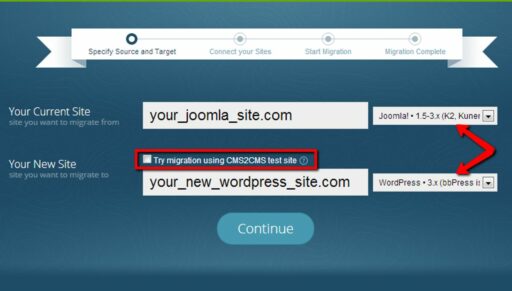Table of Contents
Google’s extensive network of data centers is a cornerstone of its global dominance in cloud services. The strategic placement and sophisticated security measures of these data centers allow Google to offer a wide range of cloud solutions tailored to various industries. This article delves into the intricacies of Google’s data center operations, exploring how they maintain compliance, optimize costs, and provide industry-specific solutions while ensuring top-notch security and offering comprehensive resources for businesses.
Key Takeaways
- Google’s data centers are strategically deployed worldwide to ensure local compliance, data sovereignty, and cost-effective operations.
- Security is paramount in Google’s data infrastructure, featuring advanced access controls, audit logging, and continuous updates.
- Google Cloud Platform offers a diverse range of services, including computing, big data, machine learning, and flexible storage solutions.
- Industry-specific solutions from Google Cloud cater to sectors such as healthcare, financial services, and telecommunications.
- Google supports businesses with extensive resources, including APIs, training materials, and a collaborative ecosystem for partners and developers.
The Strategic Deployment of Google’s Data Centers

Ensuring Local Compliance and Data Sovereignty
In the realm of cloud computing, ensuring local compliance and data sovereignty is a critical aspect of Google’s data center strategy. By deploying data centers across various regions, Google provides its users with the assurance that their data is stored and processed in accordance with local laws and regulations. This is particularly important for businesses that are subject to strict data protection laws, such as the General Data Protection Regulation (GDPR) in the European Union.
Google’s commitment to data sovereignty is reflected in its partnerships and product offerings, which include Sovereign Controls by Partners and the T-Systems Sovereign Cloud. These collaborations and services are designed to give clients the control they need over their data, ensuring that compliance requirements are seamlessly met.
The following list highlights key products that support Google’s data sovereignty efforts:
- Cloud External Key Manager
- Cloud HSM
- Cloud Key Management Service
- Confidential Computing
- Secret Manager
Additionally, Google’s data governance tools such as Data Catalog and BigQuery governance further empower users to manage and protect their sensitive data effectively.
Facilitating Multi-region Redundancy
Google’s data centers are strategically placed across various regions to ensure that services remain uninterrupted even in the face of unforeseen events. Multi-region redundancy is a critical component of this strategy, providing failover support and maintaining high availability of services. By distributing instances across multiple Availability Zones (AZs), Google ensures that if one data center encounters issues, others can seamlessly handle the requests.
Isolation and distance between AZs are key to reducing the risk of simultaneous failures. While close enough to maintain low-latency connections, these AZs are sufficiently separated to withstand localized disasters. This geographical spread of resources is essential for a robust disaster recovery plan, ensuring that an outage in one zone does not compromise the entire network.
The architecture of multi-region redundancy not only safeguards against data center outages but also enhances the performance by facilitating load balancing across different regions.
Here’s a brief overview of how multi-region redundancy works in practice:
- Instances are launched in selected regions and then distributed across multiple AZs.
- Synchronous replication across AZs ensures data integrity and availability.
- In the event of an AZ failure, other zones provide immediate failover support.
- Continuous monitoring and automated adjustments maintain optimal service levels.
Cost Optimization through Regional Selection
Google’s data centers are strategically located to optimize costs for businesses. By selecting the right region, companies can significantly reduce expenses associated with data storage and processing. Cost optimization is not just about finding the lowest price; it’s about balancing performance with expenditure.
Google Cloud Platform (GCP) offers detailed metrics to help users understand and manage their costs effectively. For instance, the Google Kubernetes Engine (GKE) provides cost-related utilization metrics, enabling businesses to gauge the efficiency of their resource usage.
Understanding the difference between regions, availability zones, and local zones is crucial for cost optimization. Each of these geographic designations has implications for pricing and performance. For example, data centers in availability zones are interconnected with high-speed, low-latency links, offering robustness and potentially lower costs due to shared infrastructure.
If you’re considering GCP for your cloud needs, it’s advisable to consult with cloud experts. They can provide an initial assessment to identify opportunities to reduce your spend, ensuring that you reclaim capital for growth rather than overpaying for cloud resources.
Security at the Heart of Google’s Data Infrastructure

Advanced Access Control Measures
Google’s commitment to security is evident in its sophisticated Identity and Access Management (IAM) system, which allows for precise control over user permissions and resource access. IAM plays a crucial role in safeguarding cloud resources, enabling businesses to define and manage access at a granular level.
The Access Context Manager further enhances security by considering the context of access requests, such as user location and device security status, to enforce policies dynamically. This is particularly important for businesses with complex security needs.
Despite the robustness of Google’s access control measures, challenges such as Access Control Limitations can arise. For instance, IAM roles are project-specific, which can complicate access setups across multiple projects or organizations.
Additionally, Google’s Key Management Service (KMS) bolsters the security posture by offering a dedicated key management service within GCP. KMS is instrumental in generating, managing, and using encryption keys, ensuring that sensitive data is protected both at rest and in transit.
Comprehensive Audit Logging Systems
Google’s commitment to security is exemplified by its comprehensive audit logging systems. These systems meticulously track administrative activities, access to resources, and system events, providing a detailed record that is crucial for both compliance and security analysis. Audit logs are integral to identifying potential security incidents and ensuring accountability.
Key components of Google’s audit logging include:
- Cloud Audit Logs that capture a wealth of information related to user activities and system events.
- Access Transparency logs that offer insights into the actions Google personnel take when accessing user content.
- Binary Authorization for ensuring only trusted container images are deployed.
By maintaining a robust logging infrastructure, Google enables organizations to monitor their environments effectively and respond to incidents with speed and precision.
The ability to integrate these logs with advanced security tools and services further enhances the security posture of organizations leveraging Google Cloud Platform. This integration allows for real-time analysis and automated responses to potential threats, ensuring that security measures evolve alongside emerging challenges.
Continuous Security Updates and Protocols
Google’s commitment to security is exemplified by its continuous updates and protocols designed to safeguard data and services. Regular security patches and updates are deployed across Google’s infrastructure to address vulnerabilities and enhance protection against emerging threats. This proactive approach ensures that security measures evolve in tandem with the ever-changing landscape of cyber risks.
Google’s security model is built on a framework of redundancy and resilience, aiming to maintain service integrity and data confidentiality at all times.
The Security Command Center (SCC) plays a pivotal role in this strategy, offering features like built-in remediation and vulnerability management. By leveraging advanced tools and services, Google provides a robust defense system that is both comprehensive and adaptable.
- Advisory Notifications
- Chronicle Security Operations
- Identity and Access Management (IAM) Recommender
- Binary Authorization
These components, among others, form the backbone of Google’s security operations, ensuring that clients’ data remains protected and that compliance with industry standards is consistently monitored and maintained.
Diverse Services Offered by Google Cloud Platform

Computing and Networking Capabilities
Google Cloud Platform’s computing and networking capabilities are designed to provide scalable and secure solutions for businesses of all sizes. With a suite of products that cater to various networking needs, users can create a Virtual Private Cloud (VPC) for an entire organization, ensuring isolated and secure environments within projects.
- Virtual Private Cloud (VPC)
- Cloud Load Balancing
- Cloud NAT
- Network Connectivity Center
- Network Intelligence Center
The Network Connectivity Center exemplifies Google’s commitment to seamless network connectivity management. It allows for the use of a hub-and-spoke architecture, enabling efficient data transfer between sites and full mesh connectivity between VPC networks. Moreover, services like Cloud Load Balancing and Cloud NAT facilitate traffic distribution and internet access for private instances, respectively.
Google’s networking solutions are built to optimize performance, availability, and cost, providing a robust foundation for enterprise-grade applications.
Big Data and Machine Learning Innovations
Google’s Big Data and Machine Learning offerings are transforming businesses by enabling them to harness the power of their data. Vertex AI integrates Google’s machine learning expertise with scalable solutions, allowing developers to create, deploy, and maintain AI models more efficiently. With tools like BigQuery and Looker, organizations can analyze massive datasets in real time, gaining insights that drive innovation and competitive advantage.
The Data Cloud Alliance initiative exemplifies Google’s commitment to facilitating digital transformation. By providing seamless access to critical data, businesses can leverage insights for strategic decision-making. Moreover, Google’s infrastructure, from its data centers to Cloud services, ensures that applications are both scalable and secure, catering to a wide range of enterprise needs.
Google’s suite of machine learning and AI tools, including TPUs and Cloud TPUs, empowers developers to scale their machine learning projects effectively, fostering an environment where innovation can thrive.
Here’s a snapshot of the diverse services offered:
- AI Solutions: Enhance business efficiency with AI.
- Data Warehouse and Data Lake Modernization: Accelerate migration and unlock insights.
- Stream Analytics: Gain insights from event streams in real time.
- Smart Analytics Solutions: Generate instant insights from data at any scale.
- Databases Solutions: Migrate and manage enterprise data with security and reliability.
Flexible Storage and Management Solutions
Google Cloud Platform (GCP) offers a suite of flexible storage solutions tailored to meet diverse business needs. From high-performance block storage to scalable file storage, GCP’s storage options are designed to provide secure and efficient data management.
- Block Storage: Ideal for AI, analytics, databases, and enterprise applications.
- Filestore: Offers scalable file storage with robust security features.
- Persistent Disk: Provides reliable block storage for VM instances.
- Cloud Storage for Firebase: Object storage solution for user-generated content.
- Local SSD: High-speed block storage for performance-critical applications.
Additionally, GCP’s data transfer services facilitate seamless movement of data, ensuring that businesses can maintain continuity and agility in their operations.
With fair egress pricing and simple cost structures, GCP stands out as a cost-effective solution for businesses looking to optimize their cloud storage and management.
The platform’s comprehensive backup and disaster recovery services underscore its commitment to data protection, offering centralized, application-consistent data backup across various environments, including GKE and SAP HANA databases.
Industry-Specific Solutions Powered by Google Cloud

Healthcare and Life Sciences
Google Cloud’s commitment to healthcare and life sciences is evident through its suite of specialized services designed to advance research and empower healthcare innovation. The Cloud Healthcare API integrates with existing healthcare systems, facilitating interoperability and enabling secure data exchange.
- Healthcare Data Engine accelerates analysis with pre-built templates and best practices.
- Healthcare Natural Language API extracts pertinent information from medical texts.
- Cloud Life Sciences tools support biomedical research.
Google’s industry-specific solutions in healthcare are transforming how patient data is managed and analyzed, leading to more personalized care and efficient operations.
Financial Services and Anti-Money Laundering AI
In the financial sector, Google Cloud has positioned itself as a pivotal player by offering advanced solutions tailored to combat financial crimes, such as money laundering. Detecting suspicious activities with the help of AI has become more efficient, reducing the time and resources spent on manual investigations.
Google’s Anti-Money Laundering AI leverages machine learning to analyze patterns and flag irregular transactions, which is crucial for financial institutions aiming to adhere to regulatory standards and protect their operations.
The integration of Google Cloud’s AI into financial services has not only enhanced security but also provided a competitive edge through innovation. Financial institutions can now harness the power of cloud computing to process vast amounts of data for real-time analysis and decision-making.
Here’s a glimpse of the capabilities offered by Google Cloud for financial services:
- Advanced data analytics for transaction monitoring
- Real-time fraud detection and prevention
- Scalable infrastructure to handle peak loads
- Compliance tools for regulatory requirements
- Machine learning models for predictive analytics
Telecommunications and Network Automation
In the rapidly evolving telecommunications industry, Google Cloud is at the forefront of network automation. With solutions like Telecom Network Automation, operators can leverage cloud-native automation for more efficient network management. This intent-driven automation simplifies the orchestration of telecom networks, ensuring agility and responsiveness to market demands.
Google Cloud’s offerings extend beyond automation to include a comprehensive suite of tools designed for the telecom sector. These include:
- Telecom Data Fabric for streamlined data management and analytics.
- Telecom Subscriber Insights to enhance subscriber acquisition and retention strategies.
- Spectrum Access System (SAS) for managing access to the CBRS spectrum.
- Integration Services and Application Integration to seamlessly connect with third-party applications and maintain data consistency.
Embracing these solutions empowers telecom operators to innovate and maintain a competitive edge in a market that is constantly being reshaped by new technologies.
Supporting Businesses with Resources and Training

Comprehensive APIs and gcloud Reference Materials
Google Cloud’s suite of APIs and gcloud command-line tools provide developers with the necessary resources to efficiently manage and interact with Google Cloud services. The extensive documentation and quickstart guides ensure that developers can easily navigate the complexities of cloud computing.
- Google Cloud documentation
- Google Cloud quickstarts
- Google Cloud Marketplace
- Learn about cloud computing
- Support
- Code samples
- Cloud Architecture Center
- Training
- Certifications
Google’s commitment to providing comprehensive resources is evident in the breadth of materials available, from detailed documentation to interactive tutorials. This empowers businesses to harness the full potential of Google Cloud for their specific needs.
The gcloud CLI, in conjunction with the Cloud APIs, offers a powerful and flexible way to script and automate cloud resource management. Whether you are managing virtual machines, deploying applications, or analyzing data, these tools are designed to streamline operations and enhance productivity.
Self-paced Training and Skills Development
Google’s commitment to supporting businesses extends to providing self-paced training and skills development resources. These resources are designed to help individuals and organizations leverage Google Cloud’s full potential at their own pace.
The training materials range from beginner to advanced levels, covering various aspects of Google Cloud Platform (GCP). Users can access tutorials, quickstarts, and labs to build practical skills. For instance, mitigating supply chain risks and scanning infrastructure as code (IaC) files are part of the advanced security posture training.
The focus on web development, business intelligence, and data ensures that the training is relevant to modern data-driven businesses. Topics like AI, big data, machine learning, Python, and R are extensively covered.
Additionally, Google provides a series of growth services, including content marketing and digital marketing, to help businesses expand their online presence and reach. These services complement the technical skills learned and enable a holistic approach to business growth.
Partnerships and Collaborative Ecosystem
Google’s data centers are not just hubs of technology; they are also nodes in a vast network of partnerships and collaborative ecosystems. Google Cloud’s Partner Advantage program is designed to foster innovation and support businesses in their cloud journey. Through this initiative, companies can access a range of benefits, from technical resources to marketing support.
- Google Cloud Consulting
- Google Cloud Marketplace
- Google Cloud partners
- Become a partner
These partnerships extend beyond mere service offerings. They include strategic collaborations with companies like T-Systems for the Sovereign Cloud, ensuring compliance with local data regulations. The Partner Interconnect program further enhances connectivity and scalability through services such as Cloud Router and Cloud DNS.
To effectively leverage these partnerships, businesses should consider engaging with Google Cloud’s certified partners for professional services, which can help mitigate potential challenges and enhance security measures.
Conclusion
As we have explored throughout this article, Google’s data centers are a testament to the company’s commitment to global reach, security, and innovation. With a vast network of data centers strategically located around the world, Google Cloud Platform (GCP) ensures that businesses can operate efficiently, meet regional data regulations, and leverage a wide range of services tailored to their needs. From industry-specific solutions like anti-money laundering AI and the Cloud Healthcare API to comprehensive offerings for digital transformation and operational efficiency, Google’s infrastructure is designed to support the modern enterprise in its digital journey. As data center advancements continue to evolve, Google’s forward-thinking approach positions it as a leader in the cloud computing space, ready to address the challenges of today and tomorrow. The global reach and sophistication of Google’s data centers not only reflect the company’s technical prowess but also its dedication to empowering organizations across the globe.
Frequently Asked Questions
Why is global reach important for Google’s data centers?
Google Cloud Platform’s global network of data centers ensures that applications can be accessed from anywhere in the world, complying with local regulations like those in the European Union and enabling multi-region redundancy and cost optimization by hosting in less expensive regions.
What security measures does Google implement in its data centers?
Google’s data infrastructure includes advanced access control measures, comprehensive audit logging systems, and continuous security updates and protocols to maintain high levels of security.
What range of services does Google Cloud Platform offer?
Google Cloud Platform provides a wide array of services including computing, networking, storage, big data, machine learning, and management solutions to meet diverse cloud computing needs.
How does Google Cloud cater to industry-specific needs?
Google Cloud offers specialized solutions such as Anti Money Laundering AI for financial services, Cloud Healthcare API for healthcare, and Telecom Network Automation for telecommunications, among others.
What resources does Google Cloud provide for businesses and developers?
Google Cloud supports businesses with comprehensive APIs, gcloud reference materials, self-paced training from Google Cloud Skills Boost, partnerships, and a collaborative ecosystem for skills development.
How does Google Cloud ensure continuous advancement in data center technology?
Google Cloud continuously invests in modern data center advancements such as sustainable operations, energy efficiency, and the latest in cloud infrastructure technology to stay at the forefront of the industry.





